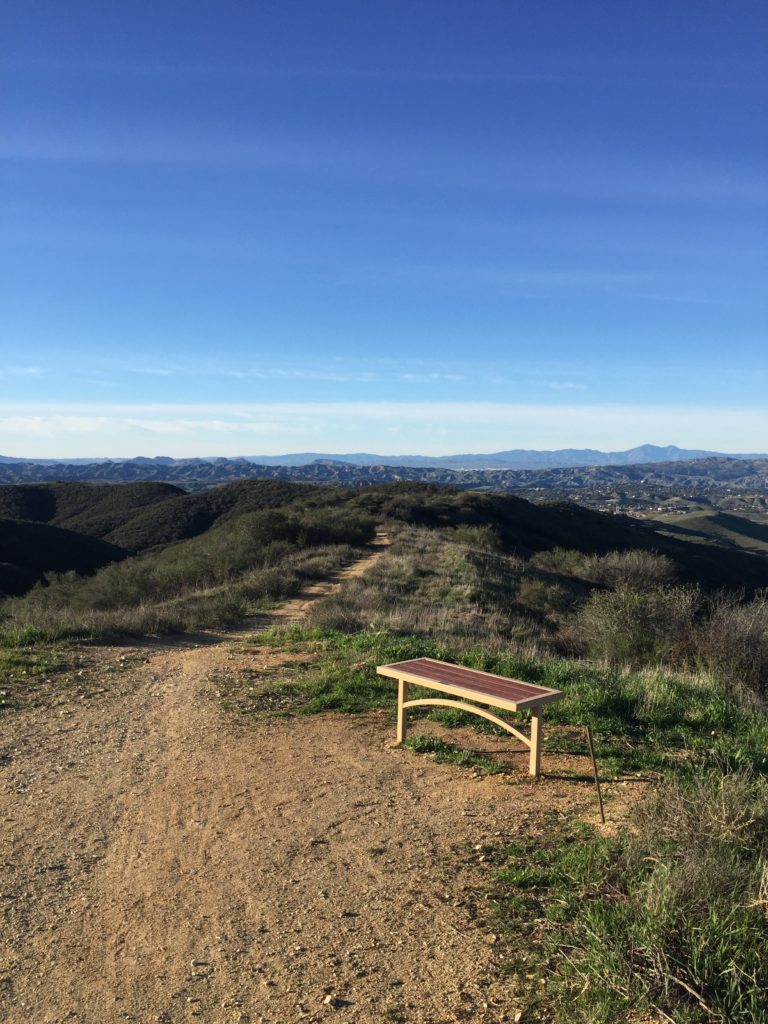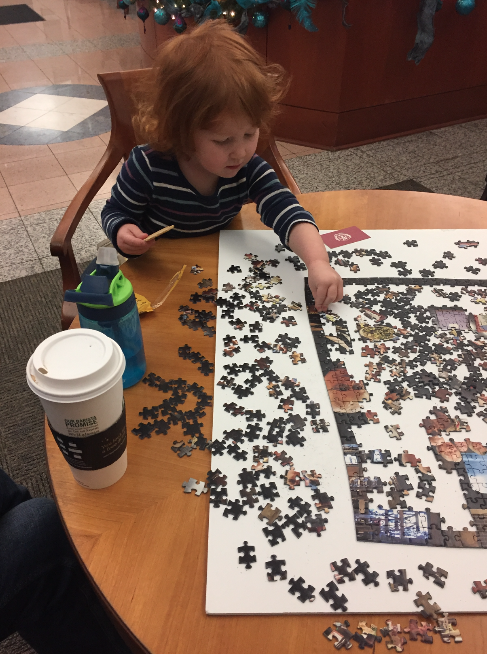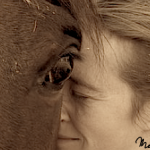Week 5 – Another Bar Napkin
| February 8, 2019 | Posted by Melinda under Uncategorized |
I’ve always intended that there be more than one Bar Napkin Book. I envisioned it as a series of short, to-the-point, practical guides on a whole bunch of topics that anyone with 2-3 hours could learn and apply. Unfortunately, I’ve been too busy with other projects to get another Bar Napkin together, but if you held my feet to the fire and said “WRITE ANOTHER BAR NAPKIN RIGHT THIS VERY MINUTE”, I would write about how not to say the wrong thing to your friend whose life is going to sh*t. Then, I would finish the book with helpful tips of how to keep it together when it’s your own life that goes to sh*t (also called “Being Resilient”).
We could call it A Bar Napkin Guide – “Get Through It: A guide to not saying the wrong thing”.
To be very clear – I’m not writing this book. It sounds less fun than writing a book on *running (Run for Fun, a guide for not-so-serious runners), or a book on exercise physiology (Squishy Stuff, a guide to your endurance horse), or a book on all the mistakes I’ve ever made in endurance (Unfortunate Tales, a guide of how not to do endurance). It probably wouldn’t even be that much fun to read – who wants to read a list of things NOT to do?
*I’m not writing any of these books either, but don’t they sound like more fun?
However, if I was theoretically writing this book, this is what I would say (and I’ve tried to include some stuff you CAN say and do, not just what to avoid).
(Quick note: I’m an introvert. An introvert that needs a certain amount of social interaction and who actually enjoys certain types of social interaction….but nevertheless an introvert that needs mental space and quiet time away from other people. The words in this post reflect those values. In my experience it can be difficult to find the right way to support an introvert – especially if you are an extrovert. Everything you do and say seems to be wrong! I hope this gives you some ideas of what might be helpful)
Part 1: What not to say when you don’t know what to say
For those of you on the outside of the really bad thing.
Chapter 1: Yes you need to say something
My sister died five years ago unexpectedly. To this day my mother can still remember the people who did not say anything or acknowledge her death in any way. This includes people actually related to us. It feels strange and hurtful.
You may not know what to say, but even something awkward that acknowledges the life-changing event is far better than to say nothing at all. You aren’t reminding me that something terrible has happened. I’m living with it every day. Here’s why you need to say something.
- If I don’t want to talk about it, I’ll thank you and change the subject but I will know you care.
- I won’t have to wonder whether you know or not. Because if you don’t know, I have to make the decision of whether or not to tell you. Which has more to do with whether I have the energy to repeat the whole sorrid tale, than whether or not you have the right to know.
Right after my sister died, and again when I found out that I had cancer, if I ran into someone who didn’t say anything about it I would wonder if they knew yet. The first two or three times I tell the sad story, it is cathartic. After that, no matter how empathetic the listener is, or how important that person is in my life, having to recount the current events in whatever life tradegy I’m living sucks my mental energy dry.
A very simple “I’m sorry that….” goes a long ways. I’m normally not a fan of empty apologies for things that are not your responsibility, but in this case it can be a very simple and effective way to let someone know you care without digging too deep or getting too personal.
Chapter 2: Don’t (ever) quarterback
There’s been at least two times in the last couple months after I got my diagnosis that I was “Monday Morning Quarterback’ed”. Just don’t. Ever.
It’s really easy to look back and say “why of course it was yada yada disease! It explains all your symptoms perfectly!”
There is nothing like 20/20 hindsight. By claiming you or whatever doctor friend you have could have put the pieces together and diagnosed a zebra in the snap of your fingers is arrogant.
Imagine a 1000 piece jig saw puzzle in pieces on a table in front of you. There’s no box or picture, so you don’t know what you are putting together. Most of the pieces are brown fur, so you can make a guess that it’s not a parrot that you are putting together. It’s probably some sort of animal. Is it a dog? A bear? A deer? Or maybe it’s the slick fur of a seal laying on the beach.
As you get more pieces put together, you see hooves on the bottom of the legs. It’s not a beer or a seal. Not a dog either. Maybe a deer or a moose?
There’s a nose, and an ear. A short tail. Some sort of antler thing on it’s headStill not enough information to say definitely.
At the end, it’s a moose! It wasn’t one of your original guesses, but you gradually were able to make that decision by putting all the pieces together. In fact, now as you put the last 25 pieces into place, it’s quite obvious.
Now imagine a person you barely know walked into your living room, stared at the finished puzzle and said, “of course it was a moose! It couldn’t have been a deer because the ratio of antler pieces to fur pieces was wrong from the beginning”. He breaks apart your puzzle and shuffles the pieces around to show you how obvious it was. He’s confident that if a pile of puzzle pieces landed on his living room table, he would be able to spot a moose puzzle instantly and differentiate it from a deer.
I think as a medical professional and doctor myself, I have a lot of awareness of how simple a case seems in retrospect, unlike when you are having to wade through the multitude of symptoms that may or may not be related, complicated timelines, and methodically working towards most likely diagnosis’s to the final and hopefully correct diagnosis. It’s a process. It’s messy. It’s rarely as straightforward as it looks from the outside. Even if Dr. Arrogant could have diagnosed the zebra disease right off the bat from the first visit, it would have meant that he’s the kind of doctor that jumps to conclusions, doesn’t gather all the information, and is probably wrong as much as he is right. I much more respect a doctor who wrinkles his brow and says “I don’t know. I’m going to ask a bunch of my colleagues and if we still don’t know, I’m going to refer you”. Those are the kind of doctors that I trust to make the right diagnosis.
Almost as infuriating is making assumptions about a diagnosis itself. “Oh, a meningioma, they are practically harmless”, said more than one doctor, such as my daughter’s pediatrician, when I shared the news when them. Except it’s on my optic nerve, I’m going blind, and we can’t fully treat because of the location. But you know, besides that, basically harmless.
Instead…
Let the person tell you their story. Commiserate with them. If you are asked for advice, give it. Make empathetic statements. Ask them what lessons they learned from their experience. I definitely made mistakes managing my medical case. I wish I had pushed for referrals faster in the 2nd year. I wish I had started bringing an advocate with me from the beginning. I definitely made mistakes when my sister died early and unexpectadly. I wish I had judged less and given less advice and just loved more.
Chapter 3: A case for not asking “how are you feeling?”
Wanna know the quickest way to alienate me? After not seeing me for months/years, ask how I’m feeling.
It feels invasive, insincere, and as if you are defining me through my disease.
Don’t ask how I am feeling when you know I have cancer, or my sister has died, or my best friend has been murdered, or my cousin has died, or my grandma has died…..(it’s been a pretty sh*tty five years).
How I’m feeling is too personal of a question to ask right off the bat. It’s complicated. Mentally? Physically? Do you want to hear that I’m feeling predictable sad after a family member’s death? Feelings are hard to define and talk about. Probably I don’t know how I’m feeling. If I do have a socially appropriate or not appropriate feeling beyond “fine”, me answering honestly is likely going to elicit a response from you that then I will have to approprately acknowledge.
Talking about feelings is really hard. You would think that something as simple as describing what emotions you are feeling would be the easiest question in the world. But it’s not! Many people go to therapy to learn how to recognize what they are feeling, and how to process them. Most small children can’t name the emotion they are feeling without you having to prompt them. Likely after a life changing event, you can’t describe how you truly feel about it until you have time to process the emotions. Let’s say you got laid off. And your mother died who had dementia and you were her primary caretaker at home. And your car got repossessed. And then you lost your house. But all that led to a once in a life time opportunity to do something wonderful and is the fulfillment of a dream, and it is everything you thought it would be. How do you feel about this?
Our feelings deserve more than being packaged up into a sound bite.
If you asked, “how are you feeling” and didn’t mean it to be that personal, that’s not any better. Why ask a question that you want/expect an “I’m good!” answer regardless of how the person is actually doing? That isn’t caring – it’s superficial and starts our conversation with a socially acceptable white lie.
“But,” you say, “my intentions are good. I care! I’m just showing that I care, and so you can’t be mad”. Please see chapter 4: Intentions aren’t the same as impact.
Now, you might be a particularly enlightened person with enlightened friends to whom the question “how are you feeling” does not strike panic into the deepest corners of their psyche. Great. That’s wonderful. However, realize for a lot of people, starting a conversation with that question is like having someone walk up to you who is not in your circle of 3-4 of your best friends and asking how much money you earn in a year. I personally don’t find financial questions invasive or a big deal – but a bunch of people do. So I try to avoid deeply offending them by not leading with that question. I suggest you treat “how are you feeling” with the same kid gloves unless you know that person very well and are perhaps in their first or second ring (see chapter 9).
Instead…
How you start the conversation sets the tone of the rest of our conversation. Start the conversation with questions that the patient can easily answer. Here are five conversation starters that have nothing to do with “how I’m feeling”. Not all these questions are appropriate for everyone, so use some common sense. Try and choose a question that is easy to answer and doesn’t require a lot of brain power or get too personal right off the bat.
- Are you having any side effects from the treatment?
- How many more treatments to go?
- How do you like the staff at the treatment facility?
- How’s the weather been?
- Have you been reading any good books lately?
Chapter 4: Intention isn’t the same as impact
It’s not about your intentions, its about how the person feels about the gesture. *You* may think it’s a great idea, but if it fills the person it’s suppose to help with dread and anxiety, then it’s not the right thing to do. Make sure whatever you have planned will do what it’s intended to do – ie make life easier on the person going through hell – and if your perfect idea or sacrifice isn’t the right fit for that friend at that time, maybe it will be in a different circumstance or with a different person in the future.
Instead…
Instead of trying to think about what *you* would want if you were in your friends situation, look at it from your friend’s perspective and try to choose actions that *they* will find beneficial.
Chapter 5: It’s probably too soon
Even when you feel like you’ve given your friend plenty of time to settle in, depending on their challenges, it still may be too soon for them to have the mental space to reach out in a meaningful way. Relevant blog post.
Instead…
Reach out when you think appropriate, but make sure you know that you don’t expect a response because you know things might be crazy.
Chapter 6: Never (ever) comment on weight
Commenting on weight loss is as inappropriate as commenting on weight gain. It’s none of your business, it’s invasive, and there could be a lot of different reasons for it. It could be medical, emotional, or something else. If the person wants to talk about their weight, let them bring it up. Even if the weight gain or loss is a good thing, commenting on it let’s the person know you notice – even when you don’t bring it up when it’s not a positive thing. Trust me, we all know whether we’ve gained or lost weight and if I’m proud of it, I’ll bring it up.
Instead…
If you think my outfit is cute, say it!
Chapter 7: Curiosity isn’t the same as caring
Be careful before you message someone out of the blue and ask for a personal update. If you haven’t seen the person for awhile, asking for the run down of the latest tradegy in their life probably isn’t the best way to start the conversation.
Instead…
Poke around on facebook and see what you can find out. If they have a blog, do a little reading and see what they’ve already shared publically. Then decide whether to ask for more.
Chapter 8: It’s harder for you than me
Instead…
Take your emotional cues from the person.
Chapter 9: The circle ring theory
There are multiple places on my blog that I’ve talked about the Ring theory which can be found here. The link in Chapter 8 above references the ring theory.
Remember, their crisis is not your crisis. You are a supporting character. You are allowed to star in your own crisis but it has a plot and structure separate from your friends’.
Chapter 10: I wanna help! What about stuff I CAN do?
The good news is that you really can make a difference. You really can help your friend get through this. The positive things people have done for me during this really trying time in my life far outweigh the negative things that have been done and said.
If you can be generous with money….
People gave me money. Even when I told them not. But honestly, even though we didn’t NEED the money (my definition of not needing money – I won’t have to live under a bridge after this is done so I’ll be FINE), it was really really REALLY nice to get it. It made everything big and small SO MUCH EASIER.
..but don’t:
One really important note about money: Do not start a GoFundMe or similar campaign without permission. I made it clear up front just how unhappy I would be if this had been done for me, and fortunately my friends did listen.
But not everyone can give money. Is there anything else?
YES. There are a TON of other things you can do to help.
If you can be generous with time…
The time you took to send me a card with a message inside. Or draw me a picture. Or send me a play list of your favorite songs. THESE MATTERED TO ME. Being on a call-list if I needed a ride to the air port, turning out my horses, offering to come in and clean my house while I was gone, babysitting my child all day so both me and my husband could be at a doctor’s appointment. Offering to come visit for a day. Regular emails. Funny memes that come through my facebook messenger app. Lists of good local trails to run on, offers of horse’s to ride if I need to scratch that itch. Another set of friends brought me dinner at my house one weekend with wine, and socialized for a couple of hours.
….but don’t:
be a flake when your friend actually breaks down and asks for your help. It’s important for me to say that this didn’t happen to me with my friends or family. It happened to my husband. After being told he could count on someone “whatever the need” he asked them to pick up a small thing at a store and bring it to an event they were both going to in a couple of days.
The response he got was that they were really busy so probably couldn’t do it.
I’m sure it didn’t register to the person that this thing that needed to be done was part of the “cancer help”. However, when a crisis is happening in your family, sometimes it’s not the “cancer stuff” you need help with – it’s all the other details in your life that still have to get done, but have been shoved so far down the priority list as to be basically non-existant. Sometimes the most helpful thing is to help the person feel like they aren’t failing at life – because they remembered and managed to get that birthday present in time (because of help of a friend), or because the car got an oil change even though they didn’t have an hour to spare because a friend stepped up.
I’m not sure my extremely stressed husband who has the burden of working his full-time job, being a single parent, and keeping the household functioning (which includes an emergency bathroom remodel that he is doing because it’s cheaper) has not reached out for help again after that incident. It was that traumatic for him ask for help and then be turned down.
Please know that if those of us that are going through a hard time ask our friends for help, we don’t do so lightly, even if our request seems really stupid. Every time I’ve asked a friend for help I’ve agonized over how inconvenient it would be for them and try never to ask for something I don’t think they can freely give without being too inconvienced. You trusted me enough to say “I’ll be there for you, whatever you need”, and I try really hard not to ask of you anything that would break that trust.
If you can be generous with your stuff…
I had a friend offer me a tablet, with unlimited data to use as a hotspot in my motorhome.
Another friend sent me a blue apron meal box.
Someone else brought me a platter of dates, and a family member made sure I went on the road with a full bucket of oranges, tangerines, and avocados.
When she heard how cold my motorhome was, a friend offered to send me a heating pad.

One of my vacation days while I was at Loma Linda – Disneyland with one of my best friends, and getting to see the park in the dark (which is my favorite).
Part 2: How to keep it together when your life goes to sh*t
For the person in the eye of the hurricane
Chapter 11: Create boundaries and be specific
I learned that any googling about any of my symptoms, potential diagnosis’s prior to be diagnosed, or prognosis after I got diagnosed only ended in anxious anxiety if done after 9pm. So, any “research” had to be done prior to then. However then I discovered that any computer use after 9pm resulted in me accidentally doing “research”, so I revoked all my computer privileges starting at 9pm.
It may help to review the ring theory linked above.
I designated people to help manage certain aspects. For example, my husband handled all referrals and insurance phone calls. I also asked that any requests for updates or offers of help that came from his side of the family were directed at him, not me. I handled my family and my friends.
I let people know that while I would read all letters and messages sent to me and appreciated them, I likely could not/would not respond.
I let people know that I would not be adding anything to my calendar or schedule until after treatment was done, even if the event was six months out. Nothing beyond “to the end of treatment” existed in my calendar or my life.
Reduce your emotionally labor as much as possible.
Chapter 12: How will you handle offers of help?
Keep a list and put the name and specific offer of help every time someone says “I want to help”. If someone makes a general statement of “whatever you need” try to get a specific task from them. As much as possible release yourself from the emotional labor of thinking of what others can do for you. Instead, it’s easier to sort through specific offers.
Make suggestions. Ask for volunteers for certain tasks. Like, “if I need a ride to the air port, who wants to be on my call list?” Encourage people to come up with their own things and write them down – even if you don’t think you will need them. You never know. Some of the most generous and AWESOME gestures were things I didn’t even know I needed until they were offered. Some things I thought for sure I would need – rides to the airport – were never needed.
Chapter 13: Consider journaling or starting a bullet journal
I kept my schedule, todo’s, notes for appointments, and any important thoughts in a physical notebook. My preference is a physical notebook, not an electronic system, because I was less likely to see intrusive things on my phone or computer that would cause anxiety, frustration, or be a distraction when all I was doing was jotting down an appointment for the next day. A clear mental space is very important to me during a crisis.
Chapter 14: Emotional and social support – your friends and family and your fellow patients
This means you participate in activities/hobbies/communities where you form a social safety net with people who you like, respect, and who can relate to what you are going through. Not every person is going to fulfill all those parameters, but they can still be part of your social safety net. My net is composed of people from my local community, the endurance community, the veterinary world, the running world, close friends, family, and fellow patients. I keep in touch mostly on facebook and through messaging. My fellow proton patients are an important part of my emotional support here in Loma Linda. Almost daily social activities, a shared crisis, and time together that is often based around a good meal instead of formal “support group” is what makes it work.
Even if you want to spend 99% of your time along as a hard core introvert, it doesn’t mean you can’t develop a safety net and make it work for you. It also doesn’t mean attending formal support groups if that’s not your style.
Asking for help and accepting it is incredibly difficult. I accepted people’s time and money and energy, knowing that I may never be able to pay back their generosity. That’s ok. This is what our social networks are for. When you drag yourself out of whatever the current crisis is, resolve to live a life of generosity, and pay it forward.
Social connection is one factor in longevity. Making an effort to stay connected with friends and family in a meaningful balanced way is important.
Chapter 15: Know thyself – balance support with space and time to process.
Know thyself. As an introvert I knew I needed lots of mental space to take care of myself optimally. Someone staying with me for more than a day or two would actually make me more anxious and less able to handle whatever I’m going through. However, the days dragging by without any social contact isn’t the right fit either. Structured social time such as dinner, or a certain time to catch up on emails or messages, or dedicated phone call time, or a weekly one day visit with a close friend or family member balanced my along time. Find your balance.
Chapter 16: Create structure in your new life.
Chapter 17: Don’t let your disease or that event define who you are
Depending on your type of illness/event or disease society may try to define who and what you are. It is your choice. Don’t want to wear a pink ribbon and do the local cancer walk? Then don’t. You have no obligation to be anyone you don’t want to be simply because of your diagnosis.
I’m a runner and a rider and a writer. And as a side note I have a tumor and I’m blind in one eye. Another side note, I happen to be a parent. Also I have blond hair and weird colored eyes. And I’m that person who talked on TV when her best friend was murdered. But hopefully when you walk away from me, it’s the first sentence that sticks in your mind, with the others being merely afterthoughts.
Chapter 18: Bring someone to all your appointments
I’m an independent person that resists this idea. I don’t need someone with me! I’m good at taking care of myself.
But now after three years in doctor’s offices where I’ve been misled, later told things that I know did not happen, and generally not listened to no matter how polite/foreceful/logical/respectful I tried being, I have a rule. Never ever go into an appointment by myself where any decisions are being made.
Less than a year ago I started having my husband be in the room for all discussions about my eye. When I found out that the doctor had deliberately misled me about a certain aspect of potential treatment, I was able to ask him, “is that what he really said?” He would consult his notes that he took separately “yep”.
So I’m not going crazy.
When a different doctor told me she had changed the plan to what I considered an unacceptable risk/benefit, my husband was there to both back me up on my decision to go against recommendations, and also to reassure me that yes, we had made it clear at the previous appointment what we were consenting to, and she had changed it without our permission. I wasn’t going crazy.
And then, just this week, it happened again. At the start of my treatment I was told I had 25 treatments. This would mean I would be done this Tuesday. I confirmed this at this week’s appointment and got a strange look – “Oh no, it’s 28. It’s always been 28.”
Was I going crazy? I heard 25. I know I did. I had written down 25.
Maybe I misheard. I doubted myself.
I called my husband who had been at that first appointment.
Nope, they said 25.
It doesn’t really matter – if it’s 28 I’ll do 28. I’ll be done next Friday. But obviously they meant to say 28 and said 25 instead. Of course in their mind they said 28 and nothing will convince them otherwise (and I’m not trying to convince them of anything. It’s not that important to cause a fuss about). It’s a small thing. But it’s the sort of thing that plays games with your head. Makes you doubt yourself. Did I hear what I know I heard? When it says in the medical record that X happened, but you know it was Y, it’s really nice to have someone else in the room that can collaborate.
I’m to the point that whenever I’m making a decision with someone that either impacts my health, finances, or anything else I value and deeply care about the outcome, I will have someone else with me as my witness of what went down.
Chapter 19: Get a second, third…fourth opinion
I probably couldn’t have gotten an accurate diagnosis in the first year, but I probably could have gotten a diagnosis in two years instead of three if I had been more aggressive in getting more opinions.
I didn’t make the same mistake with treatment. I got three opinions before I settled on whether I would treat at all, and if so, by whom.
Every doctor who uttered the phrase “No benefit in getting a second (or third) opinion or exploring other treatment options,” was wrong. The best doctors I had could give me a list of 4-5 names of doctors at other institutions to follow up with if needed. It’s a huge red flag if a doctor can’t name a few other names in his speciality, outside of his particular institution who can review the case.
Whenever you are feeling like you want to give up and just do the easy thing….remember that while doctors are doing their best, they don’t have to live with the consequences of their mistakes. You do. For the rest of your life. No one cares more about your health than you do. So fight for it. Don’t consent to anything until you feel like you’ve been fully informed, are comfortable with your decision, and will have no regrets, even if the worst case outcome happens.
In addition to being your own advocate, and bringing another person to appointments, this was the other big lesson in this crisis. Keep looking and asking questions.
Chapter 20: Don’t wait to live. Do what you can now.
That’s basically the premise of the blog, right?
Some personal notes – next week is my LAST week at Loma Linda. So, for those of you that have stuff you intend to mail once you actually get into town and remember to buy stamps…use my Yuba City address! The move down here was so temporary I will not be forwarding my mail.
I’m basically slowly freezing to death over 6 weeks and finally caved this week and started running the heater after waking up to my motorhome being below 40 degrees. Looks like I have plenty of propane to set the thermostat at 50 degrees.
My last treatment is next Friday at 6am, for a total of 28 treatments.
You wanna know about short-term (ie right now) side effects? I don’t have any. Crazy right? We are basically microwaving my brain and so far so good. I don’t even have any skin reaction such as redness. Most other people in the patient group that are being treated for facial stuff do have redness, so I’m not sure whether my skin is just less sensitive, or if the location of the tumor is far enough down that there is very little energy being released at skin level (it’s behind my eye socket, so actually further down into my skull, even though it’s on the surface of my brain.














Mel, I’m far away and sn*wed in too. But you and your family are in my warmest thoughts at all times. Would you mind if I asked my mom’s prayer chain to include your name? I consider that group to be the Big Guns. Drop me a PM either way. Love always,
This post is nourishing food for thought, thanks for sharing your journey. Fun to meet you through my aunt and uncle, who I’m sure concur on all the above. I’m glad you all could support each other during proton therapy. Best wishes to you; hope you are back on a horse soon:)
What a fantastic blog post this is. I’ve been in the socially uncomfortable situation of not knowing what to say and if what I decide to say is too trite or too intrusive. For the most part, I believe I’ve done okay based on your writing, but it sure does help to see it again in black and white. I’ve not seen too many FB posts of late so not sure if you’re still doing any hiking as you were earlier…probably a bit cold to do so but the peace it can give you is immeasurable. Glad to hear that you you’re not having extra problems with the skin reactions…that’s fantastic.
I’m actually getting out on the trails and running about three times a week for a total of 20-25 miles! It’s been pretty rainy down there so it’s been a challenge to figure out which days to do that and which days to do a spin class at the gym. I have about three trail systems I’m utilizing and I feel so lucky they are available to me!!!!!!
I think I’m going to come out of this pretty well on track for my 100k in May. I just need to find a 50 miler in March or early April which is turning out to be difficult but I’ll figure out something!!!
When my mom was diagnosed with breast cancer last year, my mother in law super helpfully piped up with, “Oh, breast cancer! Nobody dies from *that* any more!!” I should link her to Chapter Two!!
Ginny Paschke here.
Finally – I get to a remark from you that says “use my Yuba City address”. I’ve been going nuts trying to find something somewhere in my files that had your phone number or email, or some other way to contact you besides this blog. If you think I should have access to that way to connect with you, please let me know. Email [email protected]. I have been following your blog since I first met you, as you helped me fit my Peruvian with boots, and think of you so often, hoping for a positive outcome to this hell you have been experiencing for far too long. Hope to hear back soon! Meanwhile, hang in there. You say you’ll be through with the treatments next week. GREAT news, Dr. Newton! And have a SAFE drive home!
Ginny I keep forgetting you aren’t on facebook! There was a non public post with that Information. Im emailing you!